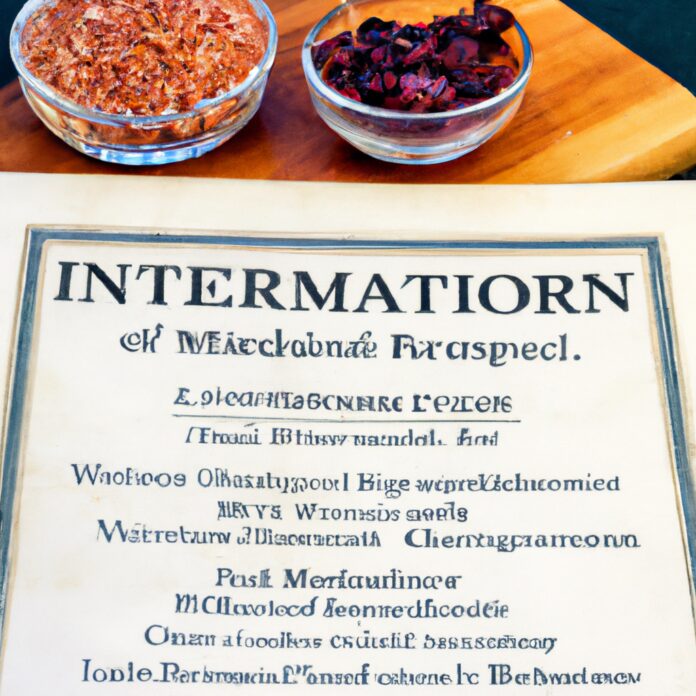As we age, our bodies can become more vulnerable to chronic inflammation. For seniors, managing this natural bodily response is key in order to continue living a healthy, active lifestyle. Fortunately, there are numerous dietary and lifestyle approaches to help control inflammation. Here are the most recommended approaches to managing inflammation in seniors.
1. Taking Control of Inflammation: Dietary and Lifestyle Choices for Senior Citizens
As one ages, inflammation is an increasingly worrying topic. But, for elderly persons, a little precaution and carefulness in food and lifestyle choices can go a long way. It can help them take control of inflammatory issues, improving their overall health.
Eating Right – It’s important for seniors to avoid unhealthy, processed foods and fried food. Instead, they should opt for fruits, vegetables, nuts and legumes, which are packed with antioxidants, vitamins, and minerals that are powerful weapons against inflammation.
Making Lifestyle Changes – The following are some helpful lifestyle changes that elders can make to help reduce inflammation:
- Increase physical activity
- Cut down on smoking
- Avoid excessive consumption of alcohol
- Maintain proper hygiene
- Reduce stress
Seniors should also keep in touch with their doctor, who may recommend some additional lifestyle changes. Additionally, they should be sure to get ample sleep, as sleep deprivation can aggravate inflammation.
2. Unearth the Source: Investigating Factors that Contribute to Senior Inflammation
Inflammation is a common symptom of aging, but experts don’t yet understand all the factors that contribute to it. To truly stave off inflammation and keep seniors healthy and active, it’s important to decode the source. Here are a few possible sources worth investigating:
- Unhealthy diet: Many seniors overlook the importance of proper nutrition, but what they eat can have an immediate effect on their inflammatory levels. A diet heavy in processed foods can worsen inflammation, and not getting enough vital nutrients can leave the body vulnerable to it.
- Lack of sleep: Sleep recharges and rejuvenates the body, so chronic insomnia—a common problem among seniors—can bring on inflammation. According to the National Sleep Foundation, only 23 percent of seniors get enough restful sleep.
- Lack of physical activity: Along with adequate sleep, seniors need to stay physically active to protect their bodies from inflammation. Regular exercise can regulate blood flow, keep the heart healthy, and improve cardiovascular health. It also releases endorphins in the brain, which reduce stress and boost the immune system.
While scientists are studying all of these contributing factors, it’s up to family members and seniors themselves to take the necessary steps towards preventive care. It’s never too late to implement healthy habits and reduce inflammatory symptoms—so don’t wait until it’s too late!
3. Nourish the Body, Heal the Mind: Exploring Dietary Options That Support Inflammation Management
We all know that eating healthier can improve our physical health. But it’s becoming increasingly clear that the foods and beverages we consume can have a positive impact on our psychological wellbeing, too. Healing inflammation with dietary choices is one way to promote both physical and mental health.
At the simplest level, incorporating more nutritious foods and drinks into your daily routine can help quell inflammation and cleanse the body of toxins that can aggravate conditions. Here are some dietary solutions that could help you manage inflammation:
- Essential fatty acids – Flax/chia seeds, nuts, and oily fish are all packed with omega-3s and other healthy fats that can help reduce inflammation.
- Plant-based proteins – Opt for organic, unprocessed, and plant-based sources of protein, such as legumes, nuts, and quinoa.
- High fiber foods – Foods like whole grains, fruit, and veggies can help your digestive system to run smoothly and reduce inflammation.
These are just a few dietary strategies that you can put into practice to better manage inflammation. To take your healing even further, you may also want to consider cutting out potential triggers, such as alcohol, processed foods, and additives that can disrupt the gut and lead to inflammation.
Remember, along with making healthier dietary choices, it’s also important to exercise regularly, get adequate rest, and practice stress-reducing activities to truly optimize both your physical and mental health.
4. Promote Positive Habits: How Lifestyle Changes Enhance Inflammation Management
Lifestyle changes can really help reduce inflammation in the body. Eating a diet rich in fruits, vegetables, whole grains, and healthy fats can help control inflammation, as can eliminating tobacco, excess sugar, alcohol, and processed foods. Additionally, research shows that regular exercise may reduce inflammation. Exercise, particularly aerobic exercise, can help reduce inflammation caused by chronic diseases like arthritis.
Here are some positive habits you can incorporate into your daily routine to enhance inflammation management:
- Eat a balanced diet full of anti-inflammatory foods.
- Quit smoking cigarettes, and try to minimize exposure to secondhand smoke.
- Manage your stress levels. Stress can worsen inflammation, so practice stress-reduction techniques such as yoga, meditation, and even dance.
- Stay physically active. Exercise not only reduces inflammation but is also essential for overall health.
- Maintain a healthy weight. Excess weight can add stress to the body, which exacerbates inflammation.
- Get plenty of restful sleep. A lack of sleep increases inflammation in the body, so aim for 7-9 hours per night.
Making healthy lifestyle choices can also help improve other medical conditions like diabetes, high cholesterol, and high blood pressure which are all linked to inflammation. Remember, it is never too late to start a healthy lifestyle. Take small steps to make change, and eventually it will add up to big improvements in your inflammation management.
5. Seize the Opportunity: Harnessing the Benefits of Proactive Inflammation Management for Seniors
Seniors are living longer, revealing the importance of healthy inflammatory processes as an organizing principle for well-being. For many older adults, low-grade inflammation is an ongoing issue created by chronic diseases associated with age and lifestyle factors. Proactive, comprehensive care plans that address inflammation are key to improving the quality of life.
- Encouraging healthy lifestyle choices: Support your senior loved one in making informed choices about foods, activities, and environment to reduce inflammation and sustain overall health.
- Following anti-inflammatory diets: Dietary modifications, such as controlling sugar and processed/fried foods intake, drinking more water, and increasing the consumption of fresh fruits and vegetables can help reduce inflammation.
Moreover, a holistic approach to age-related inflammation includes lifestyle changes such as engaging in low impact physical activities, participating in mindfulness practices, and getting plenty of sleep. Through these actions seniors can understand how their current affairs can influence their inflammatory process and encourage healthy habits to maintain overall wellness.
In addition, supplementing with nutritional products, vitamins or herbs provisioned by a health care practitioner can be beneficial elements in an inflammation management strategy because it ensures the right nutrients, vitamins, and minerals are present for well-being.
If you’re a senior looking to take control of your inflammatory response, start by implementing any of the dietary and lifestyle changes discussed in this article. It’s never too late to make healthier decisions and take steps towards a more inflammation-free life. Embrace the power of self-care and your natural capacity for healing.





